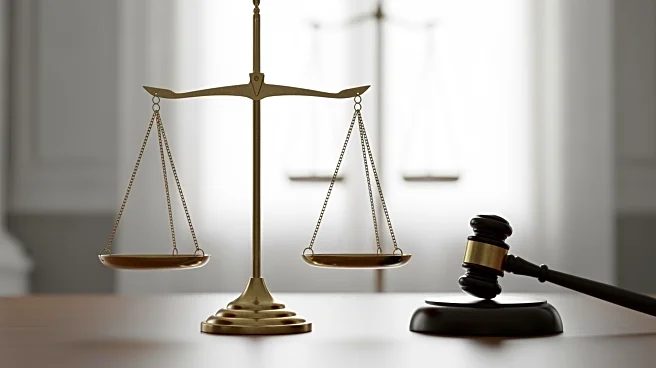What's Happening?
A recent Supreme Court procedural ruling concerning the Supplemental Nutrition Assistance Program (SNAP) has garnered attention after legal analyst Shan Wu described the decision as President Trump being
'outsmarted' by Justice Ketanji Brown Jackson. The ruling involved a temporary pause on a lower-court order that required the Trump administration to fully fund SNAP during a government shutdown. Justice Jackson's stay appeared to favor the administration but was seen as a strategic move to prevent the court's conservative majority from intervening prematurely, which could have delayed food assistance for millions. The case revolves around whether the Trump administration can legally withhold billions in emergency funds from SNAP or if federal courts can compel it to provide full funding.
Why It's Important?
The significance of this ruling lies in its impact on food assistance for over 40 million Americans who rely on SNAP benefits. The decision highlights the ongoing legal and political battle over executive power and congressionally approved spending. If the Trump administration continues to withhold funds, it could lead to delays in food assistance, affecting millions of vulnerable individuals. The ruling also underscores the strategic judicial maneuvers employed to expedite the resolution of such high-stakes cases, potentially setting a precedent for future executive power disputes.
What's Next?
The First Circuit Court of Appeals is set to decide whether to extend or lift Justice Jackson's temporary stay on the lower court's order requiring full funding of SNAP benefits. This decision will likely determine whether federal food assistance continues uninterrupted or faces delays. The losing side is expected to appeal to the Supreme Court, which could establish a precedent on the limits of executive power over congressionally approved spending. The legal and political fight over SNAP funding remains unresolved, with potential implications for millions of recipients.
Beyond the Headlines
The ruling raises deeper questions about the balance of power between the executive branch and the judiciary, particularly in matters of public welfare and emergency funding. It also highlights the ethical considerations of withholding essential services from vulnerable populations during a government shutdown. The strategic use of judicial procedures to influence broader outcomes reflects the complex interplay between law and politics in the U.S.









